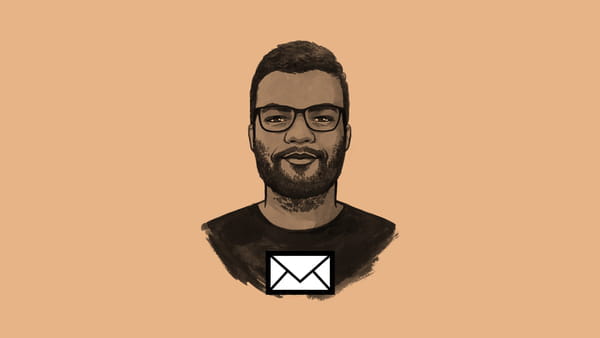Hi,
Last week, the California-based startup Modern Health raised $31m from prominent investors Founders Fund and John Doerr, together with Kleiner Perkins and Afore Capital.
On its website, Modern Health says it is a "platform for innovative companies that value the emotional wellbeing of their workforce". Through a combination of digital resources and a network of certified coaches and licensed therapists, it helps employees of corporations such as Pixar and GitLab manage their mental health.
Modern Health’s CEO Alyson Friedensohn has been on the coveted Forbes 30 Under 30 list.
“For me to do an investment of this size, I need to think the CEO is phenomenal,” Founders Fund’s Brian Singerman told Forbes. "And every single company needs this; this is going to be one of 2020s most critical benefits that any company can offer their employees."
The same article quotes Friedensohn as saying: "Traditionally, people think about mental health on this spectrum of green to red ... but mental health is not just about people in crisis, it doesn’t just mean that people are in ‘the red’. We offer a solution that helps someone before they get to these crisis modes, which is incredibly valuable and has a strong ROI (return on investment) for employers."
Modern Health isn’t alone. Last year, the UK-based startup Unmind, whose co-founder and CEO Nick Taylor is a trained clinical psychologist, raised £3m from Felix Capital et al. According to TechCrunch, its offerings include bite-sized exercises for everyday wellbeing, personalised assessments, and customised programmes for improving areas such as stress, focus and sleep.
The "ROI" from such services that Friedensohn talks about – generally defined as productivity gains from happier employees – is indeed big. I have written about it earlier, though if you are my regular reader, you’d know that overplaying words such as "productivity" and "happiness" makes me queasy.
The reason modern workplaces are stress-filled cesspits to begin with is because they are obsessed with productivity. I believe they first need to find a different language if they are serious about building humane workplaces. In the absence of this deep cultural shift, mental health tools in the hands of employees are just empty perks.
That said, like with other categories of startups in high-potential markets, investors won’t wait for perfection, and they have already started backing a few potential winners. Startups such as Modern Health and Unmind, which sell their solutions to businesses, are attracting attention because they can scale faster than those which target individual users, since mental health awareness and demand for paid services in the general public is still nascent.
Given the growing excitement, I asked Amit Malik, a psychiatrist-turned-entrepreneur, what startups building for this market need to know so they don’t lose their way in the gold rush. His responses make interesting reading.
Four smart insights from a mental-health entrepreneur
Malik has a stellar resume, including stints as consultant psychiatrist and commercial director at the UK’s Surrey and Borders Partnership NHS Foundation Trust, and director of healthcare at Allegro Capital Advisors.
Malik now runs InnerHour, a mental health startup in India that was selected for an accelerator programme co-managed by Facebook in 2019.

I invited Amit to share the biggest lessons InnerHour has learnt based on its work with corporate clients. Here are the insights he shared:
- One size doesn’t fit all organisations or individuals. Initial diagnostics at both levels are critical to develop the right programme. The journey of self-discovery and change might often be as critical at the organisational level as it is at the level of individual employees.
- Employees are genuinely concerned about confidentiality. Providers not only need to ensure confidentiality but to give employees confidence through messaging, water-tight processes, and actual practice.
- More importantly, lots of employees don’t even realise that they need emotional or psychological support because they feel they just need to be "stronger". So a degree of individualised validation of psychological distress and its causes as it pertains to them is critical to get them started on the journey to seeking and getting support. This gradual journey from self-awareness to self-care to guided self-care eventually leads to much better engagement with a counsellor or a psychologist than just providing a helpline number.
- Authenticity is critical. Organisations where the leaders themselves openly engage with psychological services see much higher engagement from their teams.
Can you add to Malik’s list? Let me know.
 Would you like this newsletter sent straight to your inbox?
Subscribe to my weekly newsletter where I dismantle myths around Sanity, discuss the best ideas from our members, and share updates on my journalism.
Would you like this newsletter sent straight to your inbox?
Subscribe to my weekly newsletter where I dismantle myths around Sanity, discuss the best ideas from our members, and share updates on my journalism.

